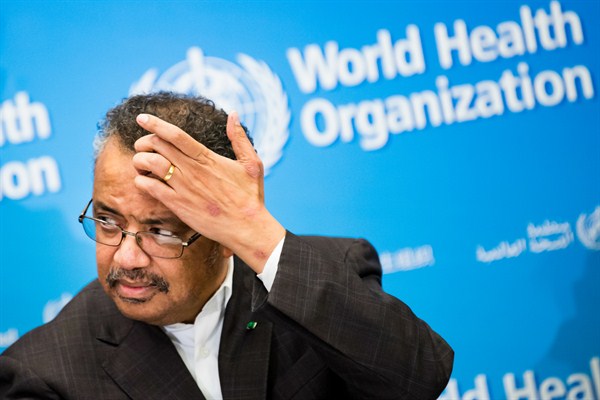The rapid spread of the Wuhan coronavirus, which the World Health Organization declared a global health emergency last Thursday, is immediately testing the multilateral system’s capacity to respond to a pandemic. As of Jan. 31, the virus had infected a reported 9,720 people in China and around 100 more in 20 other countries and territories, killing at least 213. The deepening health crisis underscores that we live in an epidemiologically interdependent world, in which outbreaks anywhere can hopscotch around the world at jet aircraft speeds.
Preserving global public health depends in large part on three things: timely and credible action by governments where outbreaks occur; firm direction and leadership from the WHO in coordinating international responses; and responsible behavior by other nations that naturally want to protect their own citizens from disease. Previous pandemics, including of Severe Acute Respiratory Syndrome, or SARS, in 2002 and 2003 and of Ebola in West Africa in 2014, show that these three things cannot be taken for granted. The coming weeks will reveal whether China, other governments and the WHO have learned their lessons from those past pandemics and implemented needed reforms.
China’s central government, which of course has primary responsibility for containing the immediate outbreak, seems determined to avoid repeating mistakes made during the outbreak of SARS, a previous coronavirus that ultimately infected more than 8,000 people in 26 countries across five continents. Although the official figures tallied “only” 800 deaths, it shaved an estimated $100 billion off global GDP. The episode also exposed the mendacity of Chinese authorities, who at first denied and subsequently downplayed the outbreak, allowing it to gather momentum in critical early phases.

